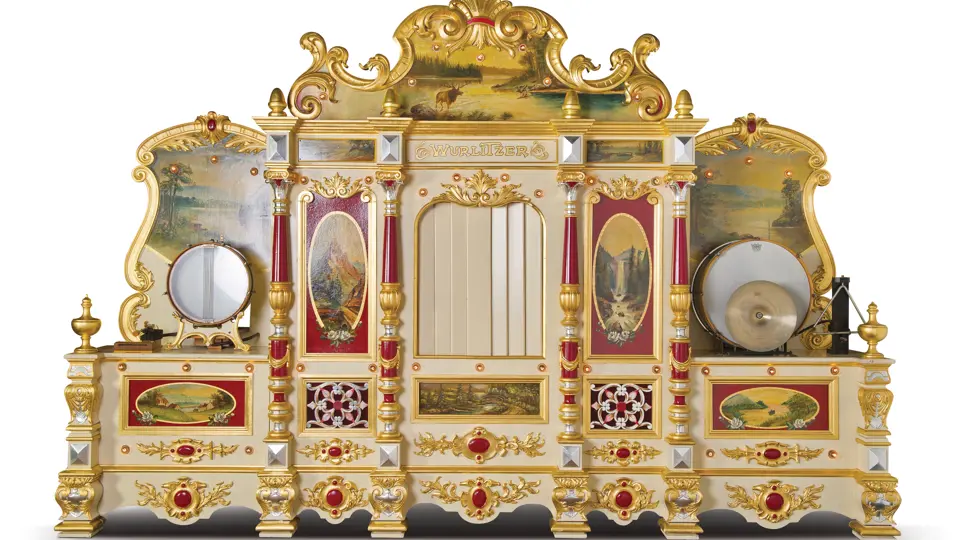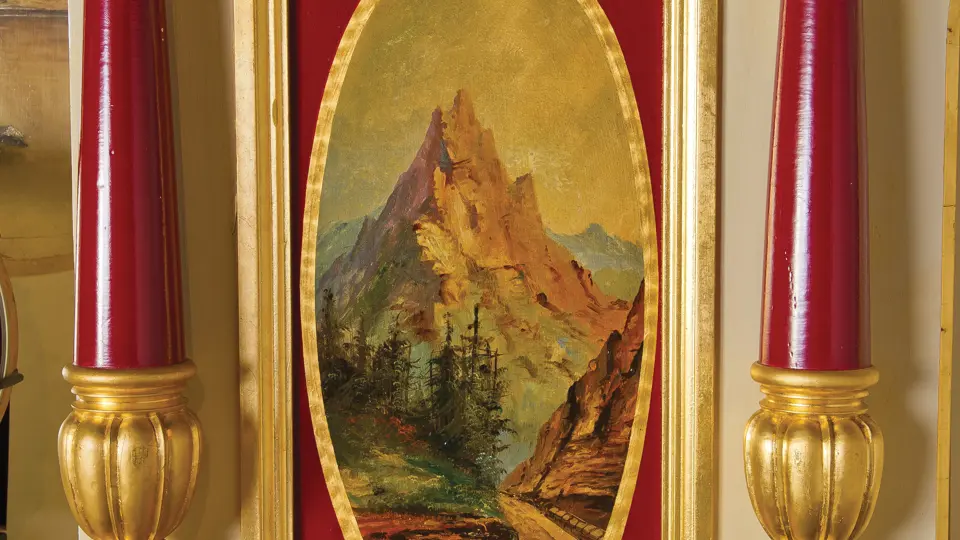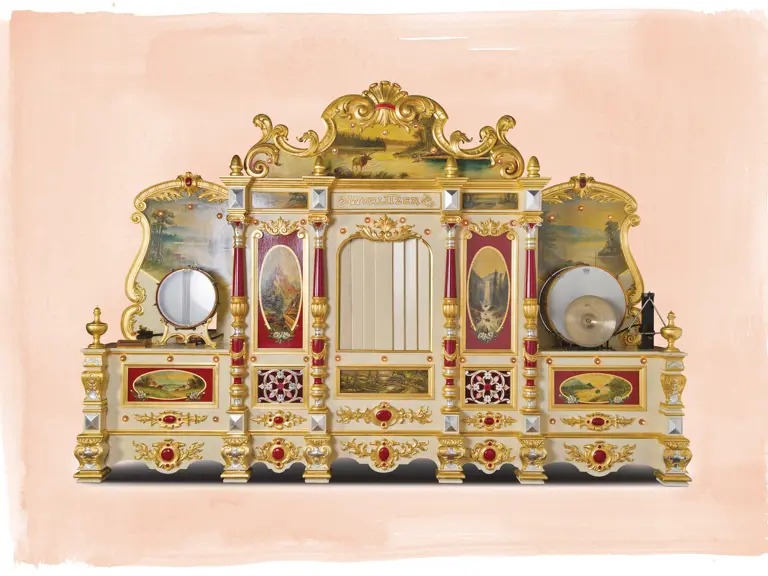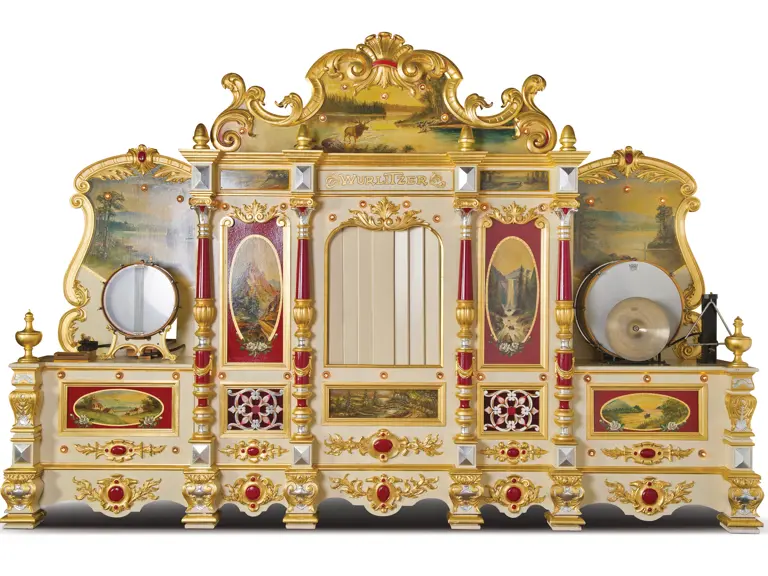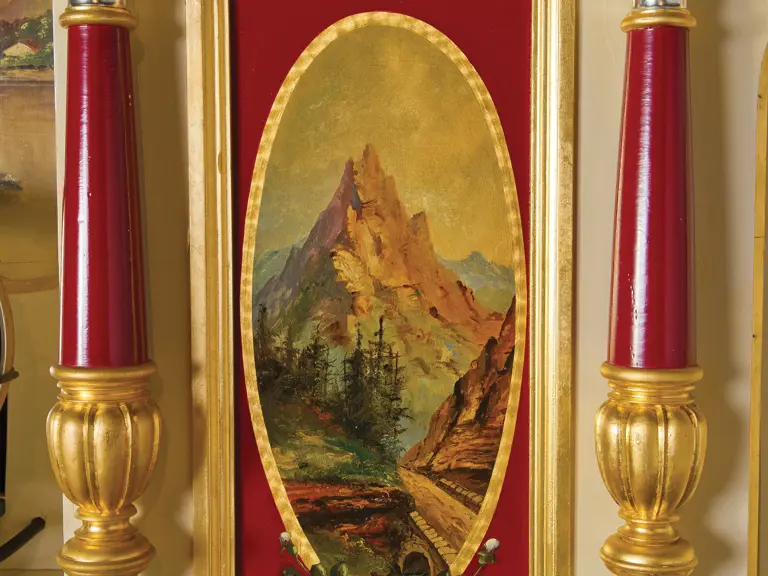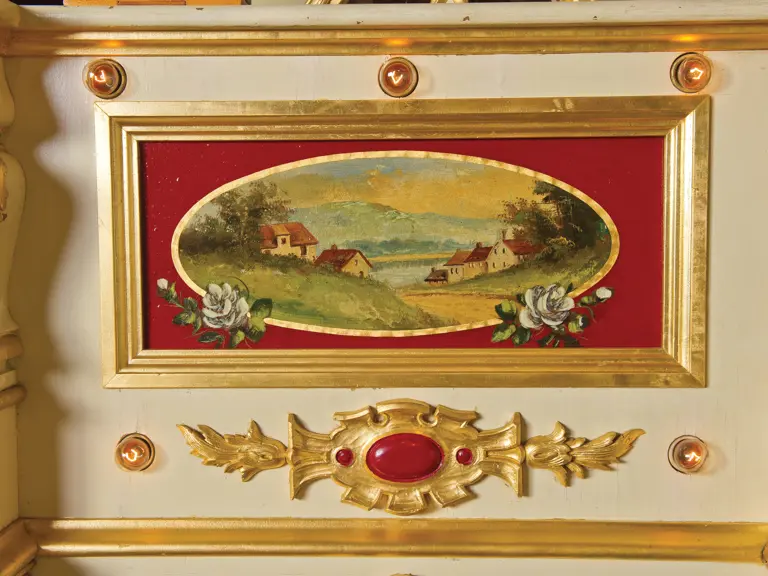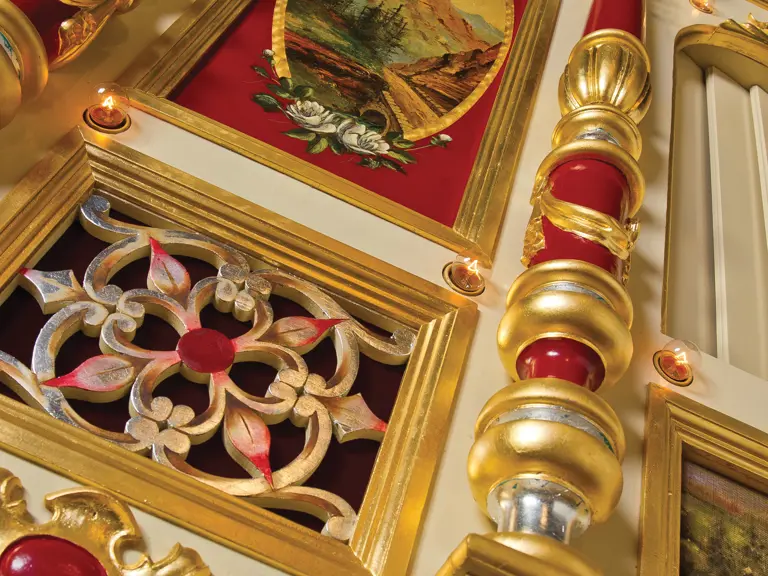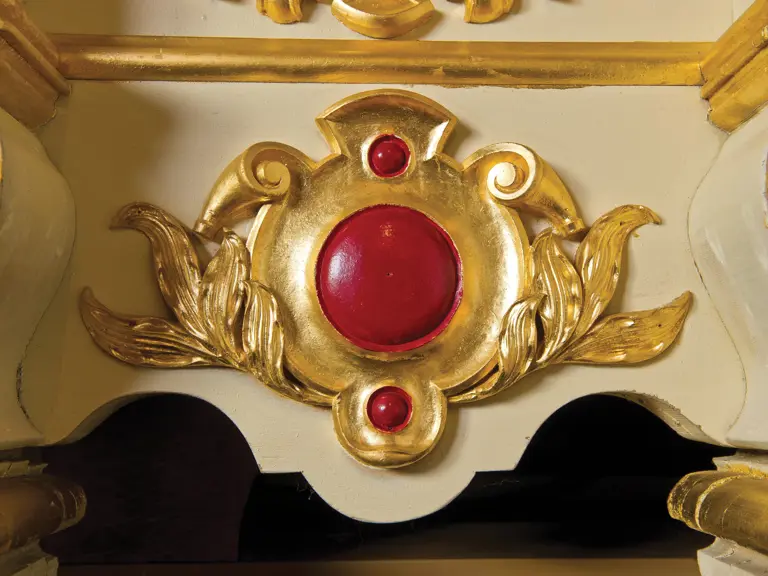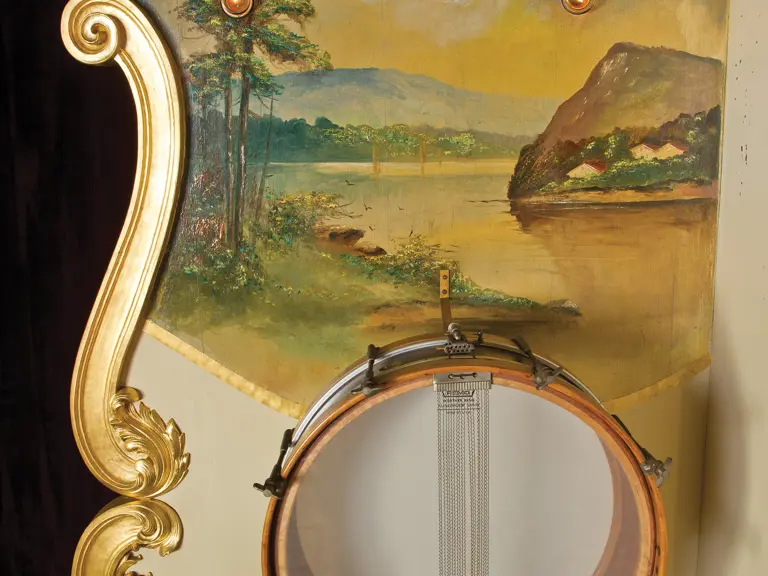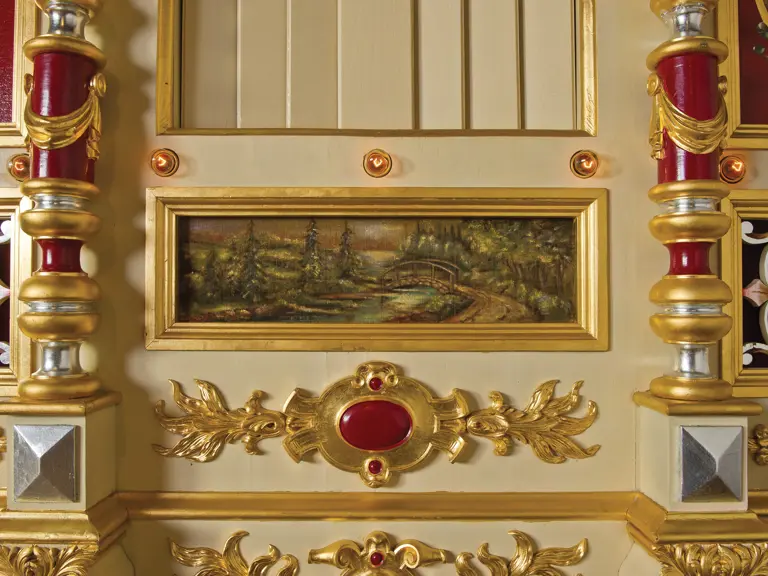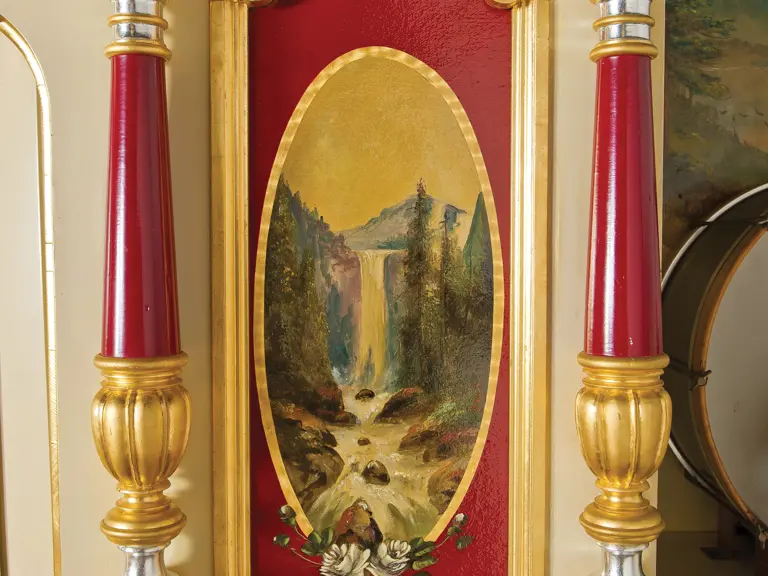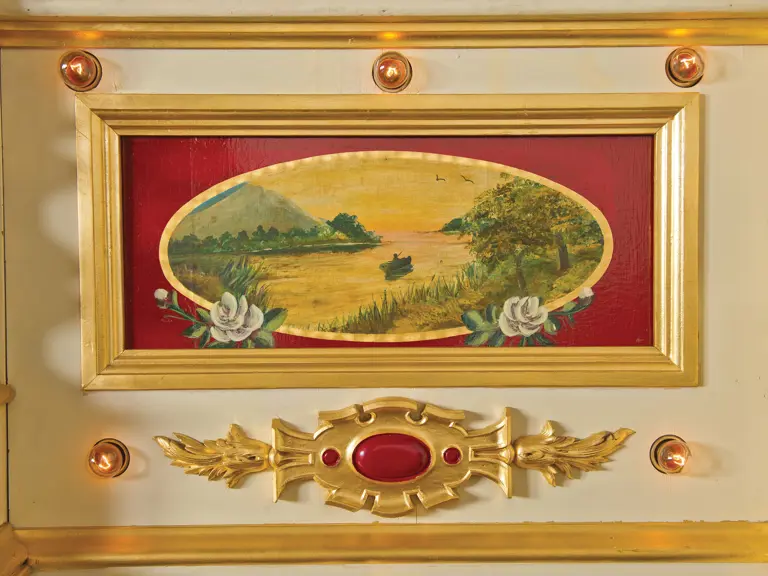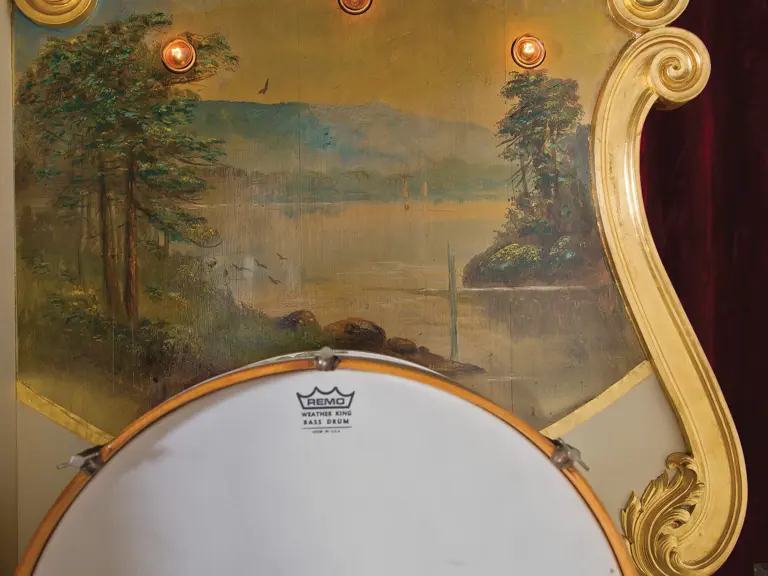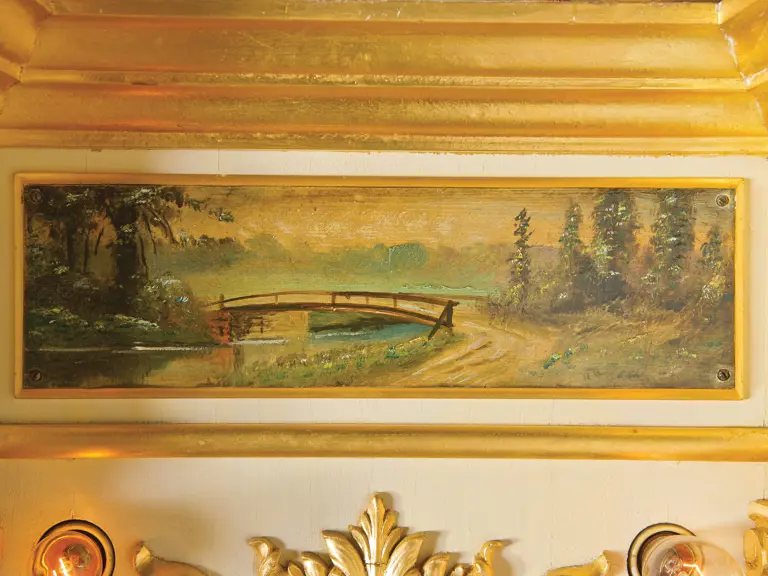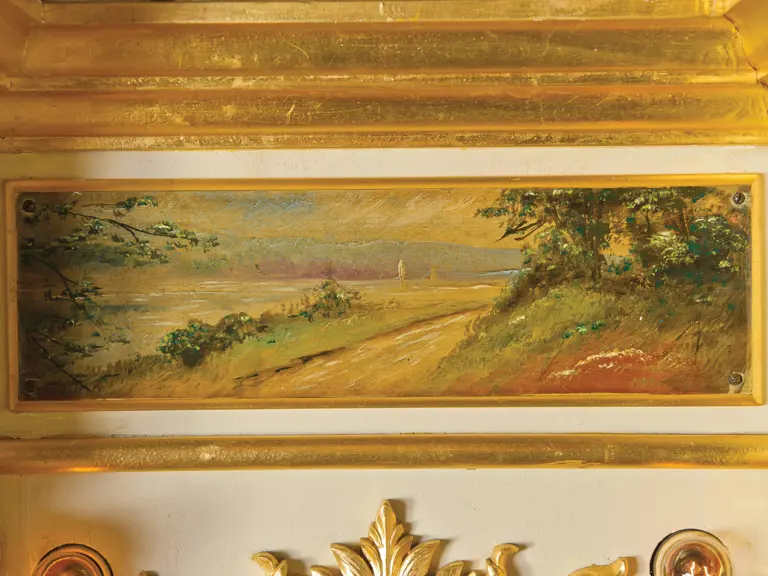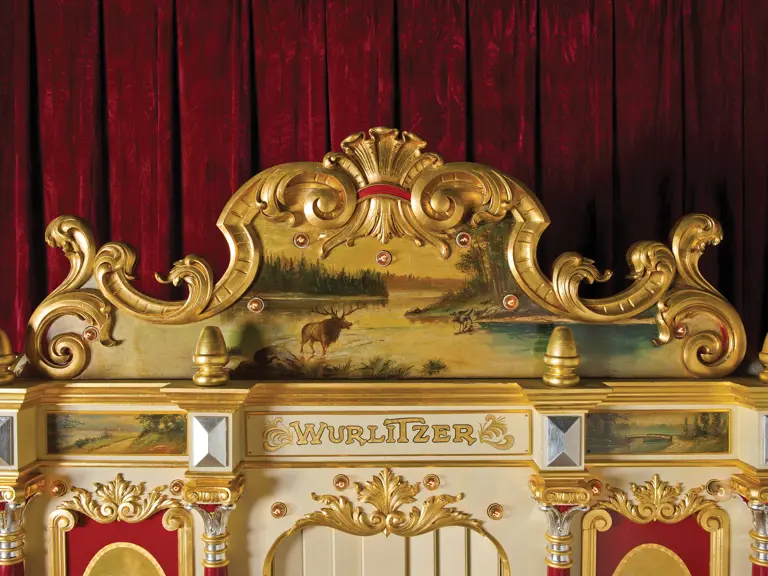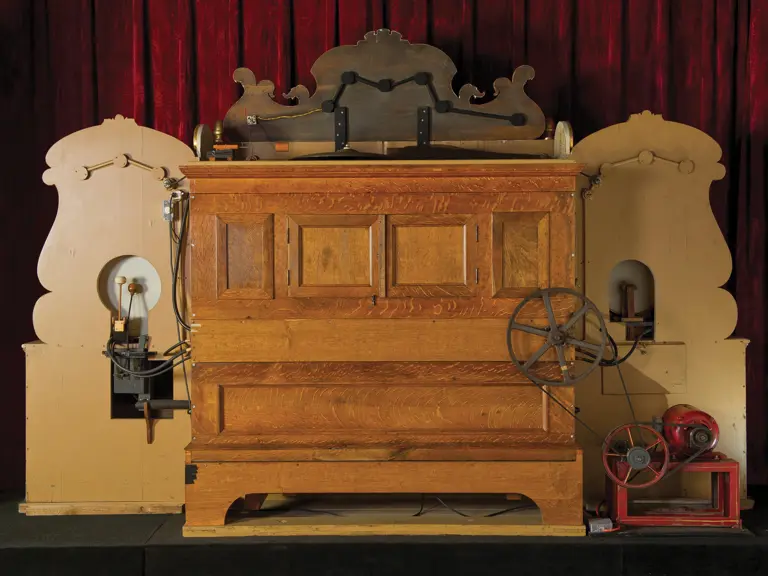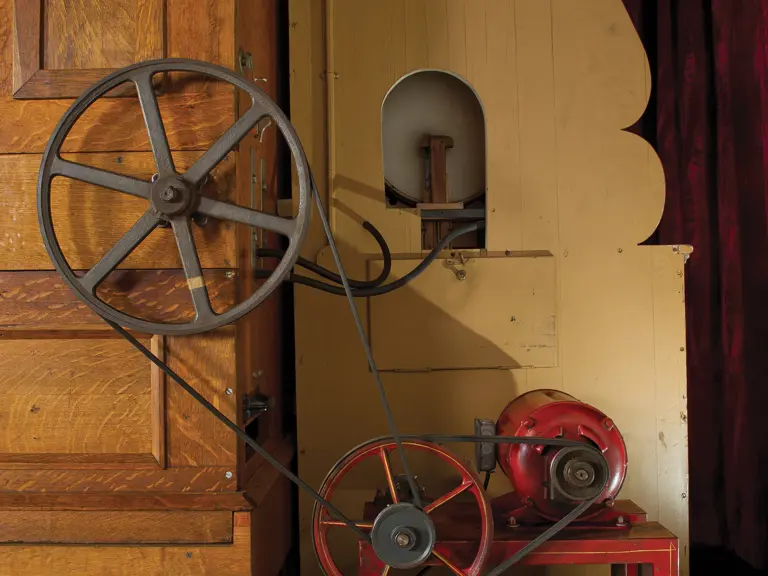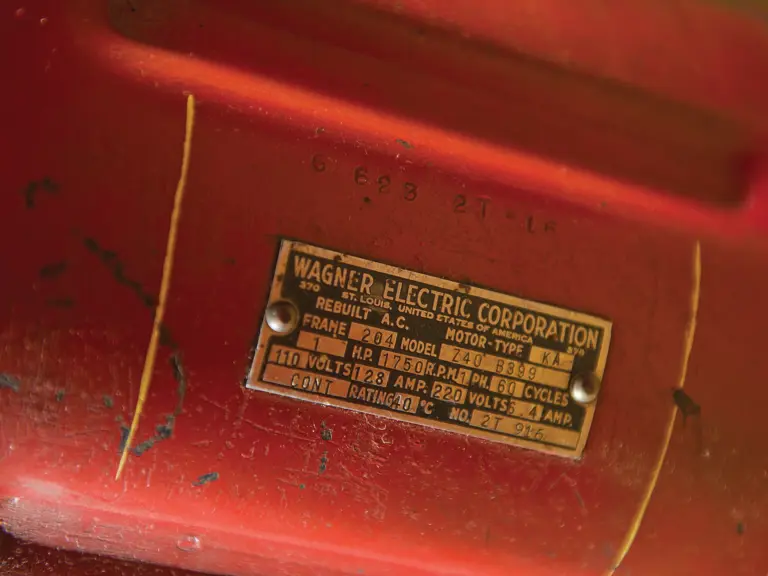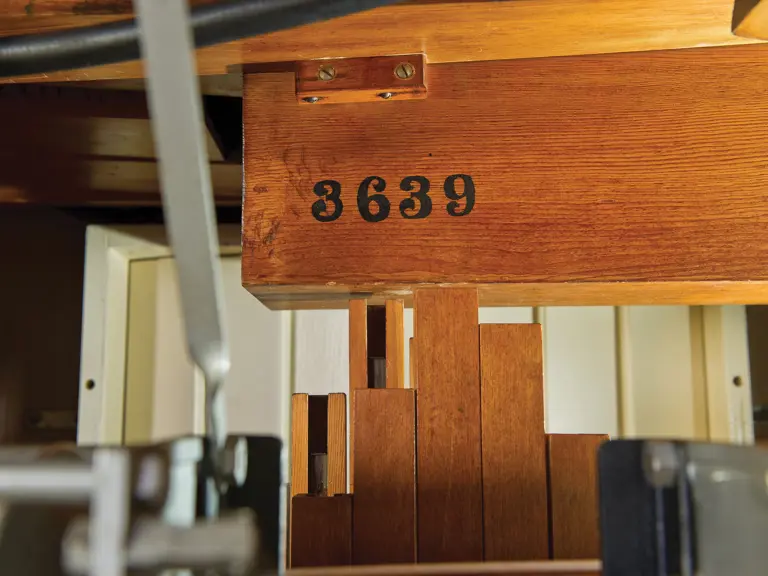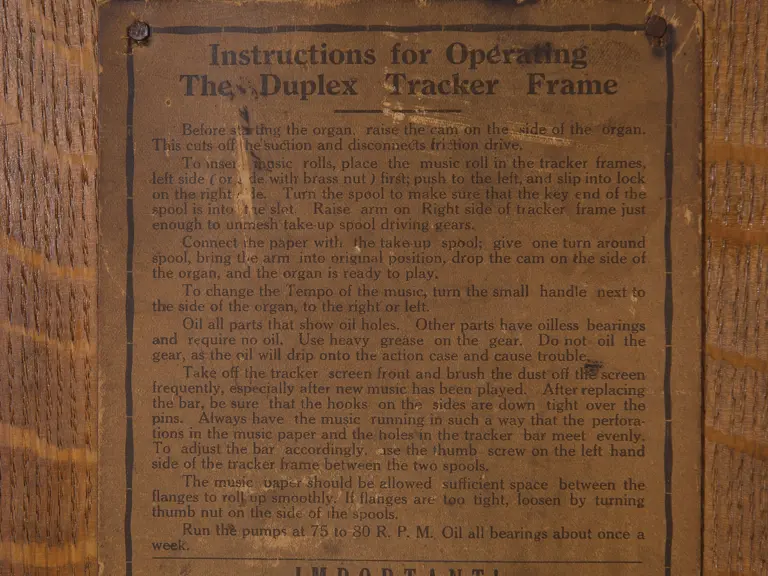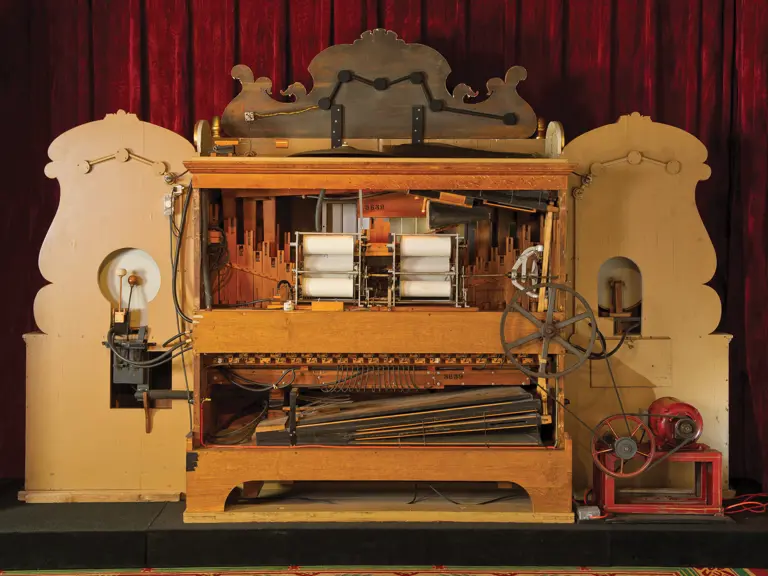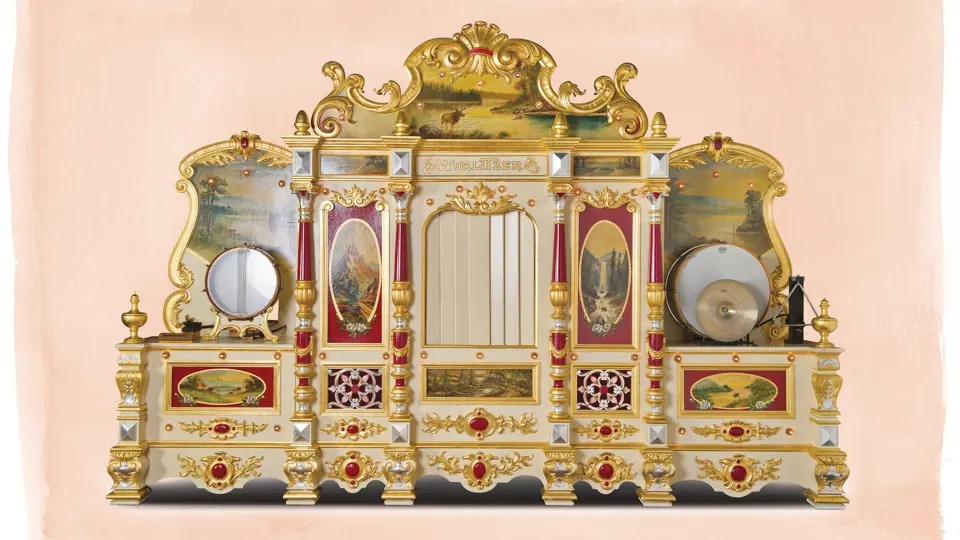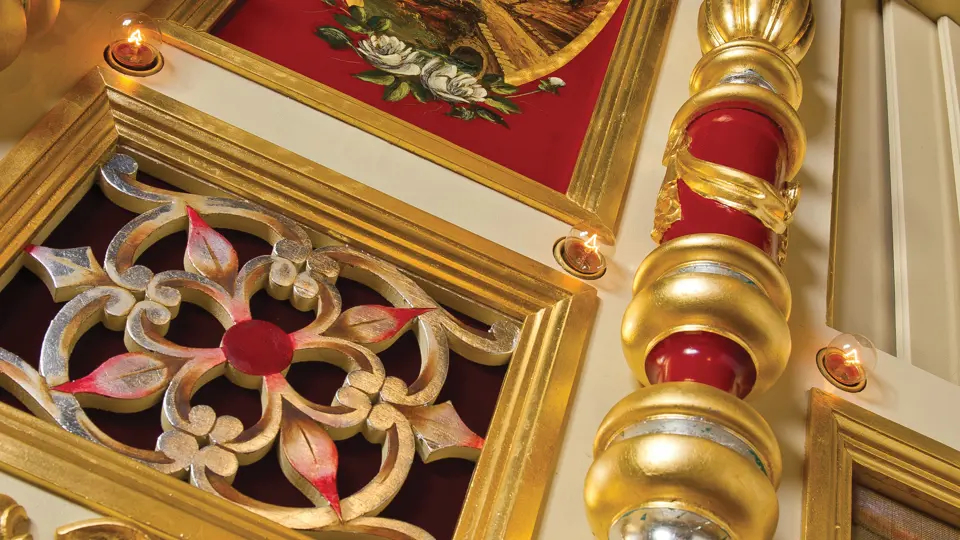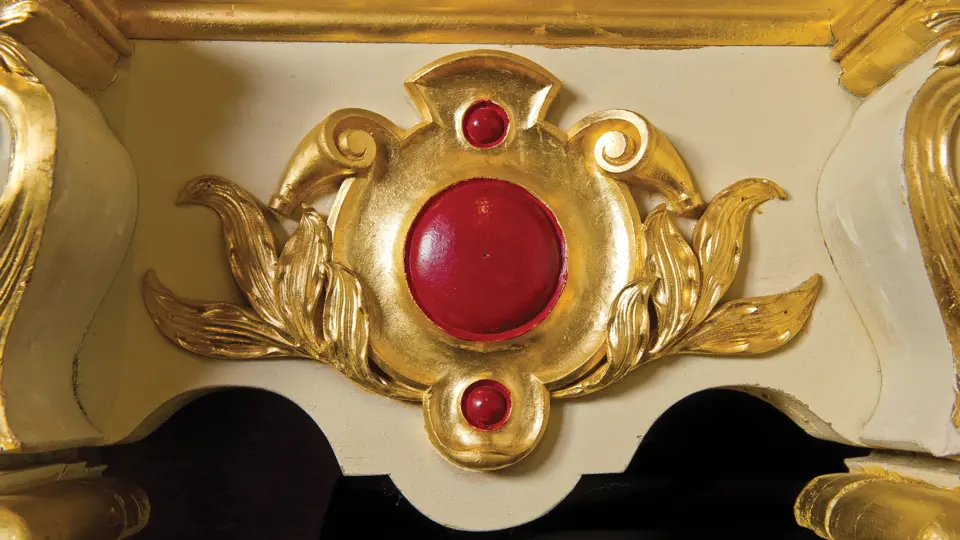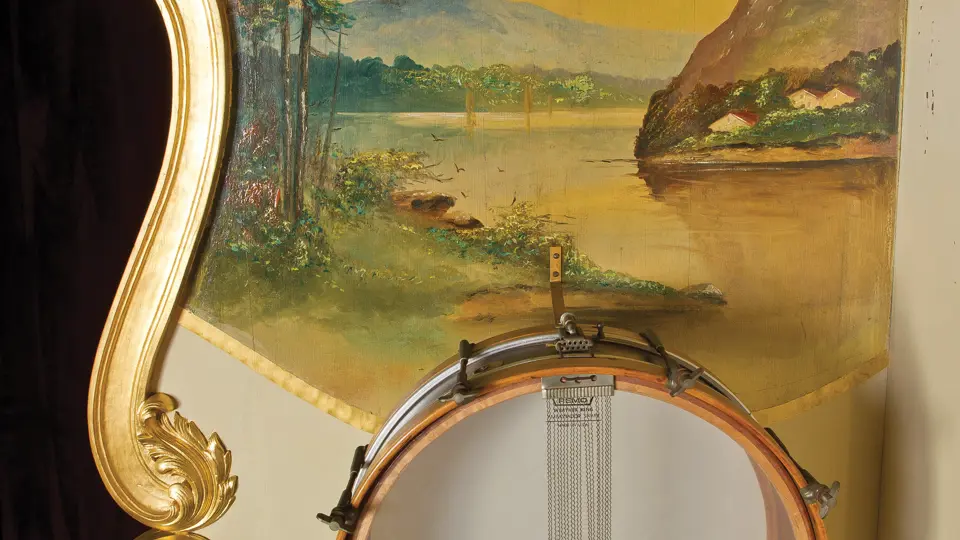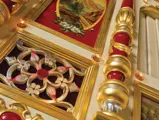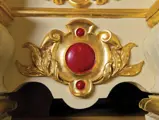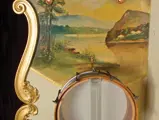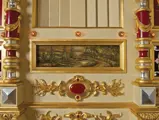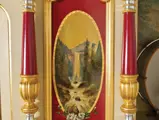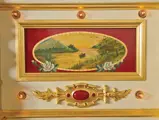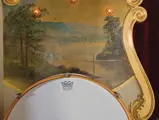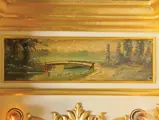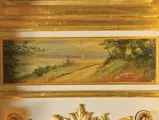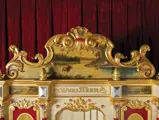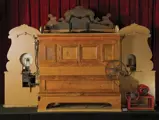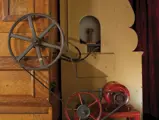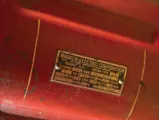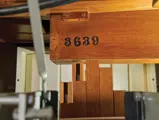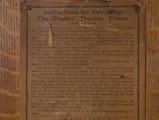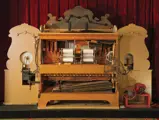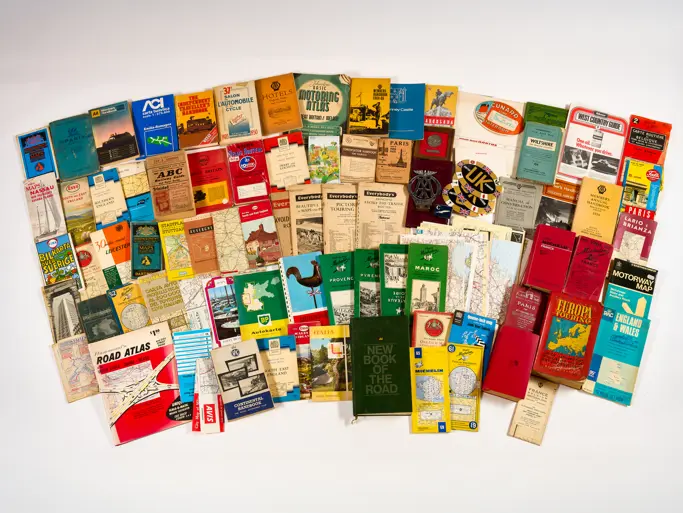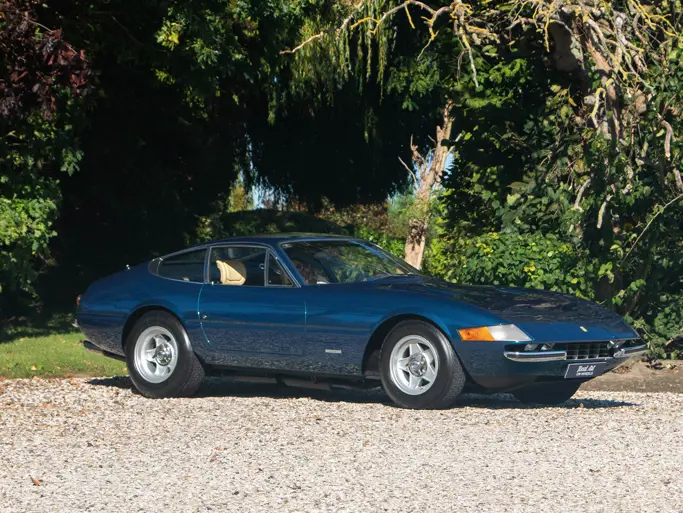 | Fort Worth, Texas
| Fort Worth, Texas
Rudolph Wurlitzer Co. (North Tonawanda, New York)
150 in. x 105 in. x 44 in.
Among large models of Wurlitzer band organs, the Style 157 model is a rare prize. An idea of its elusive nature can be gained from the fact that Hathaway & Bowers Inc. and its successor, American International Galleries, handled only one of these, in comparison to three of the large Style 165.
The Wurlitzer Style 157 organ was only produced during the 1920s for use in carousels, amusement parks, and pavilions, as well as at other public entertainment places. Rolls were made of green dry-waxed paper in order to withstand the humidity changes they encountered while in environments partially open to the outdoors. The case is oak-veneered, with a white enameled façade, and it has been elaborately carved and decorated in gold leaf, with inset paintings of landscapes. This example, serial number 3639, was delivered new in March 1924 to Spillman Engineering Company, of New York, and it may have been sold with a carousel made by that firm.
Subsequent owners have included Paul Torin, of New Rochelle, New York; Mike Ames, of Solana Beach, California; and the Milhous Collection, from whom it was acquired for the Andrews Collection. The late Mike Kitner, a band organ expert from Pennsylvania, restored it in the 1980s. It plays Wurlitzer 165 rolls on duplex (double roll) mechanisms, which were made so one roll can play while the other rewinds, eliminating the long periods of silence that occur when an organ has only one roll mechanism. A large number of rolls are included. Instrumentation on the organ includes 208 pipes, bass, and snare drums, a triangle, and a cymbal. This has been the favorite carousel organ of many collectors and enthusiasts, and the acquisition of such an instrument will not be possible again soon, as no more than 10 are known to exist today.
